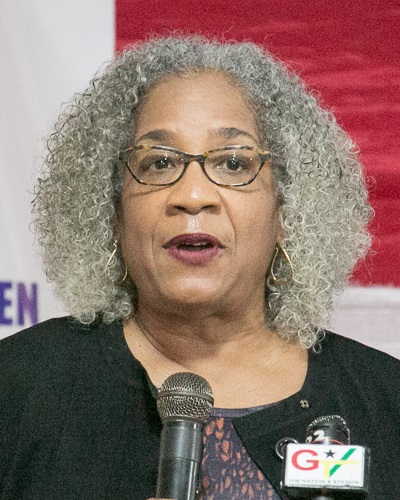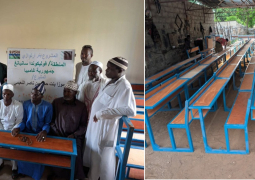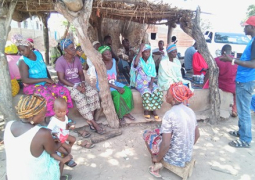
She made these remarks at the launch of the $500,000 USAID Locally-Led Adaption Project designed to fight climate Change in The Gambia.
The two-year project launch was held on Friday at the Sir Dawda Kairaba Jawara International Conference Centre, organised by the Gambia Red Cross Society (GRCS).
The project, titled “Scaling up Locally-Led Adaptation and Transformation Humanitarian Responses to Climate Change”, was funded by the United States Agency for International Development (USAID) and executed in partnership with the International Federation of Red Cross and Red Crescent Societies (IFRC).
The environmental crisis underscores the vulnerability to climate shocks that The Gambia, like so many countries faces, the US Ambassador stated, saying: “The U.S. is steadfast in its commitment to take action and to assist our partners around the world in addressing these shocks and also to increase resilience in the face of these challenges.”
She added: “Climate change is one of the most pressing and urgent challenges of our time. Not a day goes by that we don’t witness the effect of a changing climate on the world around us.”
Partnering with the Gambia Red Cross Society is both fitting and strategic, given the prominent role of the Red Cross Movement and the GRCS’s unique position within Gambian society, Ambassador Cromer said, adding that through this new partnership, they would first and foremost enhance the preparedness of their local communities and the teams on the ground that respond to disasters.
Equally important to early warning and preparedness will be their focus on climate-smart agriculture, she highlighted. “In a country where agriculture is a cornerstone of the economy and a vital source of livelihoods, adapting agricultural practices to the realities of a changing climate is crucial.”
She said the program would promote sustainable farming techniques that prevent soil erosion, deforestation, overgrazing and rehabilitation of green cover by planting trees and conducting awareness campaigns in communities.
The programs will also introduce drought-resistant crops and improve water management,” she affirmed, saying: “By embracing these innovations, we will not only increase food security but also enhance the resilience of the agricultural sector, ensuring that it can thrive even in the face of changing climatic conditions.”
She applauded the Gambia government for its forward-looking, proactive, and robust collaboration on the efforts, and cited government’s unwavering commitment as vital to the success of the project.





